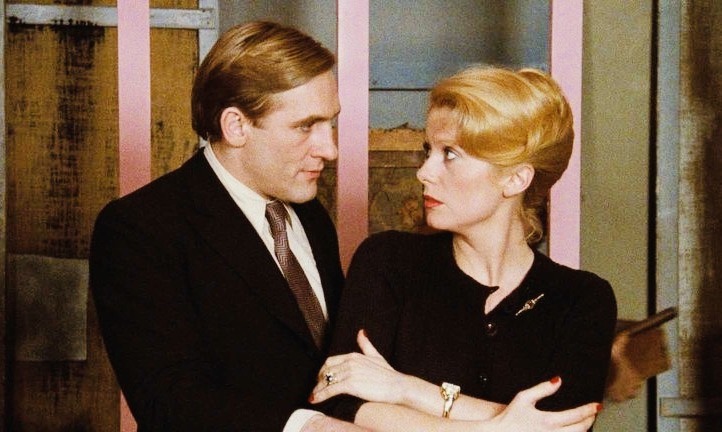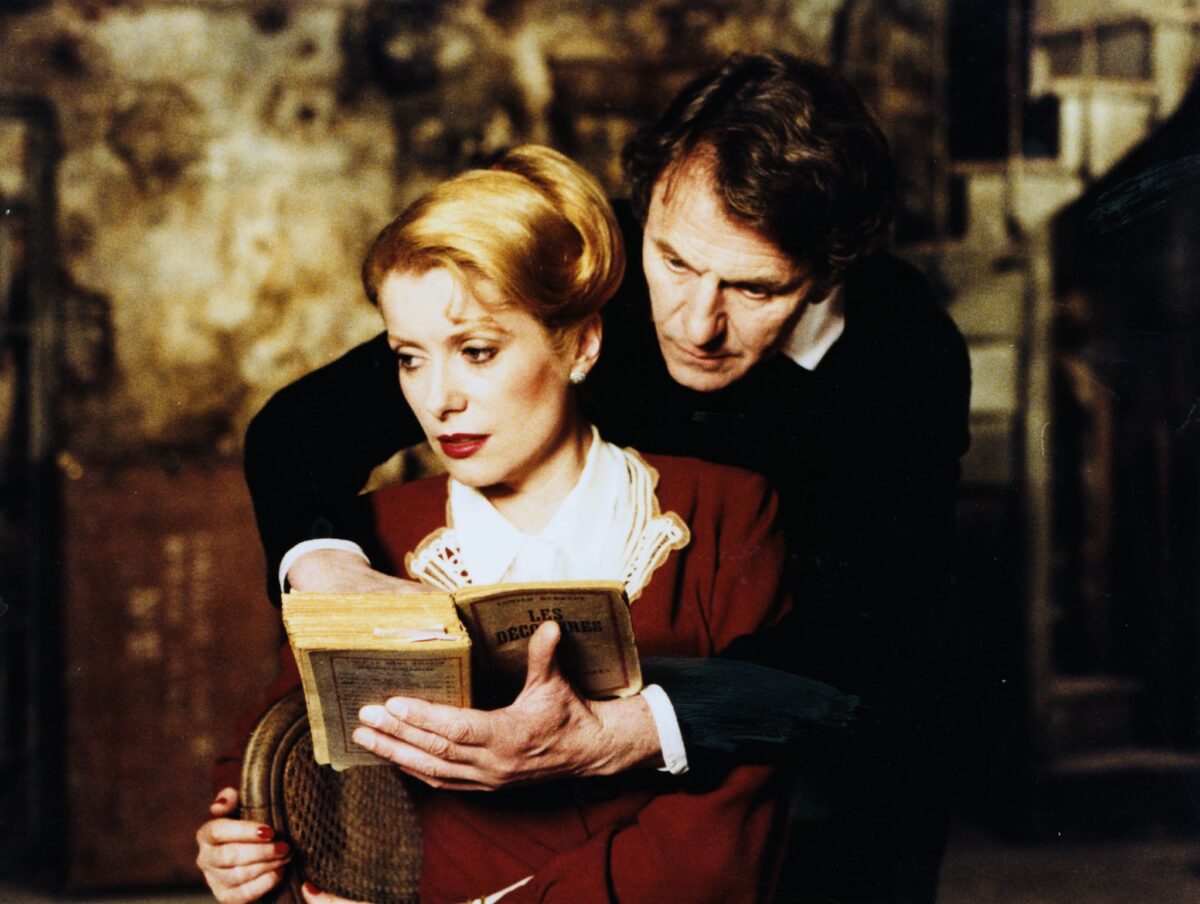Francois Truffaut’s feature film, The Last Metro, was released in 1980, eleven years after Marcel Ophuls’ past-breaking documentary, The Sorrow and the Pity, opened in theaters in France. In his stunning movie, Ophuls exposed the crimes of the collaborationist Vichy regime, which allied itself with Nazi Germany and betrayed French Jews in the name of French nationalism.
The Last Metro, which was screened on the Turner Classics Movies channel recently, offers viewers a glimpse of the antisemitic madness that gripped France during the four-year German occupation.
Starring who would be two of the biggest names in French cinema, Catherine Deneuve and Gerard Depardieu, it unfolds in Paris from 1942 until 1944. Deneuve, in fine form, plays Marion Steiner, the non-Jewish wife of Lucas Steiner (the German actor Heinz Bennent), a Jewish theater director who is forced to go into hiding after the deportation of Jews gets under way.
The actors and workers in Steiner’s Montmartre Theater have been led to believe that he has fled the country, a fiction promoted by his wife, an actress. In fact, Lucas is ensconced in the theatre’s dank basement, hoping to escape to the French free zone, which Germany has yet to occupy.
As Lucas anxiously waits for an opportunity to leave his sanctuary in safety, Marion pretends to be a Vichy acolyte, refusing to hire Jewish actors. The theater’s newest actor, Bernard Granger (Depardieu, in a credible performance), says he won’t pull down his pants to prove he’s a Christian, but readily signs a document stating he is not Jewish. Outwardly, Marion is cool toward him, but inwardly, something completely different is brewing in her heart and mind.
Lucas, in the meantime, is feeling antsy, trapped and useless. At one desperate point, he wants to register with the police, which, as Marion patiently explains, would be a great mistake. Empathetic to the core, Marion understands the pressure he is under, but she disappoints him by vetoing his proposed trip to the French free zone. Marion knows that Jews in his position have been betrayed and turned over to the Germans.

In what passes for a joke to relieve the tension, Marion says her mother warned her she would never be happy with a Jewish husband.
A new character, Daxiat (Jean-Louis Richard), is introduced at this juncture. A drama critic and a Vichy loyalist, he has high praise for Lucas, fulsomely describing him as a “gem.” But in actuality, he’s a vicious antisemite who thinks Jews should be “purged” from French culture. Later in the film, he urges Marion to divorce Lucas and plots to take over the theater.
The extent to which blatant antisemitism has seeped into French society is demonstrated in a brief scene during which Lucas listens to a radio show about Jewish physiognomy.
As these personal dramas play out, the actors rehearse their lines for a forthcoming play that Lucas’ replacement will direct. During some of these rehearsals, the line between reality and unreality is blurred in terms of the relationship between Marion and Bernard.
Forty four years after its release, The Last Metro, a workmanlike film, stands the test of time. Its production values are on a fairly high level and its message is crystal clear. France, the first European country to emancipate Jews, strayed far from its revolutionary ideals and values and sank into squalid depths during the reactionary Vichy interregnum.
